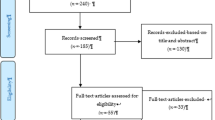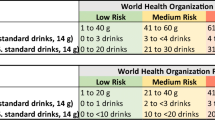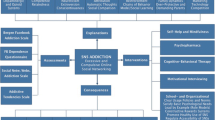Abstract
Objectives
Impulsivity has been identified as an important construct in predicting the initiation and maintenance of substance use among at-risk populations. Interventions emphasizing mindfulness strategies appear particularly promising in reducing substance use and marking change in various aspects of impulsivity.
Methods
The current study used a rolling group mindfulness-based relapse prevention (MBRP) intervention for young adults in residential substance use disorder treatment. We examined change in impulsivity facets measured by the S-UPPS for youth randomly assigned to MBRP (n = 45) versus those assigned to treatment as usual plus 12 step/self-help (n = 34). We also examined how change in impulsivity mediated changes in substance use post-treatment.
Results
In general, results indicated that MBRP is effective at reducing facets of trait impulsivity in treatment-seeking individuals with SUDs. Only positive and negative urgency mediated the relation between treatment assignment and substance use.
Conclusions
MBRP is a viable and useful intervention for young adults in residential treatment for substance use disorders and can aid in marked change in facets of impulsivity. Both positive and negative urgency were significant mechanisms of change in reducing substance use following treatment. Results are discussed focused on the utility of MRBP as a clinical intervention for at-risk, marginalized, and young adults.


Similar content being viewed by others
References
Bechara, A., & Van Der Linden, M. (2005). Decision-making and impulse control after frontal lobe injuries. Current Opinion in Neurology, 18(6), 734–739. https://doi.org/10.1097/01.wco.0000194141.56429.3c.
Blonigen, D. M., Timko, C., & Moos, R. H. (2013). Alcoholics anonymous and reduced impulsivity: a novel mechanism of change. Substance Abuse, 34(1), 4–12. https://doi.org/10.1080/08897077.2012.691448.
Bowen, S., Chawla, N., Collins, S. E., Witkiewitz, K., Hsu, S., Grow, J., et al. (2009). Mindfulness-based relapse prevention for substance use disorders: a pilot efficacy trial. Substance Abuse, 30(4), 295–305. https://doi.org/10.1080/08897070903250084.
Bowen, S., Chawla, N., & Witkiewitz, K. (2014a). Mindfulness-based relapse prevention for addictive behaviors. In R. A. Baer (Ed.), Mindfulness-based treatment approaches (Second ed., pp. 141–157). San Diego: Academic Press.
Bowen, S., Witkiewitz, K., Clifasefi, S. L., Grow, J., Chawla, N., Hsu, S., et al. (2014b). Relative efficacy of mindfulness-based relapse prevention, standard relapse prevention, and treatment as usual for substance use disorders: a randomized clinical trial. JAMA Psychiatry, 71(5), 547–556. https://doi.org/10.1001/jamapsychiatry.2013.4546.
Breslin, F. C., Zack, M., & McMain, S. (2002). An information-processing analysis of mindfulness: implications for relapse prevention in the treatment of substance abuse. Clinical Psychology: Science and Practice, 9(3), 275–299. https://doi.org/10.1093/clipsy.9.3.275.
Brewer, J. A., & Potenza, M. N. (2008). The neurobiology and genetics of impulse control disorders: relationships to drug addictions. Biochemical Pharmacology, 75(1), 63–75. https://doi.org/10.1016/j.bcp.2007.06.043.
Buchan, B. J., M L. D., Tims, F. M., & Diamond, G. S. (2002). Cannabis use: consistency and validity of self-report, on-site urine testing and laboratory testing. Addiction, 97(Suppl 1), 98–108.
Caswell, A. J., Bond, R., Duka, T., & Morgan, M. J. (2015). Further evidence of the heterogeneous nature of impulsivity. Personality and Individual Differences, 76, 68–74. https://doi.org/10.1016/j.paid.2014.11.059.
Chamorro, J., Bernardi, S., Potenza, M. N., Grant, J. E., Marsh, R., Wang, S., et al. (2012). Impulsivity in the general population: a national study. Journal of Psychiatric Research, 46(8), 994–1001. https://doi.org/10.1016/j.jpsychires.2012.04.023.
Chawla, N., Collin, S., Bowen, S., Hsu, S., Grow, J., Douglass, A., et al. (2010). The mindfulness-based relapse prevention adherence and competence scale: development, interrater reliability, and validity. Psychotherapy Research, 20(4), 388–397. https://doi.org/10.1080/10503300903544257.
Chiesa, A., & Serretti, A. (2014). Are mindfulness-based interventions effective for substance use disorders? A systematic review of the evidence. Substance Use & Misuse, 49(5), 492–512. https://doi.org/10.3109/10826084.2013.770027.
Christopher, M., Ramsey, M., & Antick, J. (2013). The role of dispositional mindfulness in mitigating the impact of stress and impulsivity on alcohol-related problems. Addiction Research & Theory, 21(5), 429–434. https://doi.org/10.3109/16066359.2012.737873.
Chuang, C.-W. I., Sussman, S., Stone, M. D., Pang, R. D., Chou, C.-P., Leventhal, A. M., et al. (2017). Impulsivity and history of behavioral addictions are associated with drug use in adolescents. Addictive Behaviors, 74, 41–47. https://doi.org/10.1016/j.addbeh.2017.05.021.
Conrod, P. J., Stewart, S. H., Comeau, N., & Maclean, A. M. (2006). Efficacy of cognitive-behavioral interventions targeting personality risk factors for youth alcohol misuse. Journal of Clinical Child and Adolescent Psychology, 35(4), 550–563. https://doi.org/10.1207/s15374424jccp3504_6.
Coskunpinar, A., Dir, A. L., & Cyders, M. A. (2013). Multidimensionality in impulsivity and alcohol use: a meta-analysis using the UPPS model of impulsivity. Alcoholism: Clinical and Experimental Research, 37(9), 1441–1450. https://doi.org/10.1111/acer.12131.
Cyders, M. A., Littlefield, A. K., Coffey, S., & Karyadi, K. A. (2014). Examination of a Short Version of the UPPS-P Impulsive Behavior Scale. Addictive Behaviors, 39(9), 1372–1376. https://doi.org/10.1016/j.addbeh.2014.02.013.
Davis, J. P., Smith, D. C., & Briley, D. A. (2017). Substance use prevention and treatment outcomes for emerging adults in non-college settings: a meta-analysis. Psychology of Addictive Behaviors, 31(3), 242. https://doi.org/10.1037/adb0000267.
Davis, J. P., Berry, D., Dumas, T. M., Ritter, E., Smith, D. C., Menard, C., et al. (2018). Substance use outcomes for mindfulness based relapse prevention are partially mediated by reductions in stress: results from a randomized trial. Journal of Substance Abuse Treatment, 91, 37–48. https://doi.org/10.1016/j.jsat.2018.05.002.
Dawe, S., & Loxton, N. J. (2004). The role of impulsivity in the development of substance use and eating disorders. Neuroscience and Biobehavioral Reviews, 28(3), 343–351. https://doi.org/10.1016/j.neubiorev.2004.03.007.
Dennis, M. L., Funk, R., Godley, S. H., Godley, M. D., & Waldron, H. (2004). Cross-validation of the alcohol and cannabis use measures in the Global Appraisal of Individual Needs (GAIN) and Timeline Followback (TLFB; Form 90) among adolescents in substance abuse treatment. Addiction, 99(Suppl 2), 120–128. https://doi.org/10.1111/j.1360-0443.2004.00859.x.
Dick, D. M., Smith, G., Olausson, P., Mitchell, S. H., Leeman, R. F., O'Malley, S. S., et al. (2010). Understanding the construct of impulsivity and its relationship to alcohol use disorders. Addiction Biology, 15(2), 217–226. https://doi.org/10.1111/j.1369-1600.2009.00190.x.
Fillmore, M. T., & Weafer, J. (2013). Behavioral inhibition and addiction. In J. MacKillop & H. de Wit (Eds.), The Wiley-Blackwell handbook of addiction psychopharmacology (pp. 135–164). Chichester: Wiley-Blackwell.
Grimm, K. J., Ram, N., & Estabrook, R. (2017). Growth modeling: structural equation and multilevel modeling approaches. New York: Guilford Press.
Helstrom, A., Hutchison, K., & Bryan, A. (2007). Motivational enhancement therapy for high-risk adolescent smokers. Addictive Behaviors, 32(10), 2404–2410. https://doi.org/10.1016/j.addbeh.2007.02.009.
Hjorthøj, C. R., Hjorthøj, A. R., & Nordentoft, M. (2012). Validity of timeline follow-back for self-reported use of cannabis and other illicit substances—systematic review and meta-analysis. Addictive Behaviors, 37(3), 225–233.
Hsu, S. H., Collins, S. E., & Marlatt, G. A. (2013). Examining psychometric properties of distress tolerance and its moderation of mindfulness-based relapse prevention effects on alcohol and other drug use outcomes. Addictive Behaviors, 38(3), 1852–1858. https://doi.org/10.1016/j.addbeh.2012.11.002.
King, K., Patock-Peckham, J., Dager, A., Thimm, K., & Gates, J. (2014). On the mismeasurement of impulsivity: trait, behavioral, and neural models in alcohol research among adolescents and young adults. Current Addiction Reports, 1(1), 19–32. https://doi.org/10.1007/s40429-013-0005-4.
Kirby, K. N., & Finch, J. C. (2010). The hierarchical structure of self-reported impulsivity. Personality and Individual Differences, 48(6), 704–713. https://doi.org/10.1016/j.paid.2010.01.019.
Kober, H., Mende-Siedlecki, P., Kross, E. F., Weber, J., Mischel, W., Hart, C. L., & Ochsner, K. N. (2010). Prefrontal–striatal pathway underlies cognitive regulation of craving. Proceedings of the National Academy of Sciences, 107(33), 14811–14816.
Kollins, S. H. (2003). Delay discounting is associated with substance use in college students. Addictive Behaviors, 28(6), 1167–1173. https://doi.org/10.1016/S0306-4603(02)00220-4.
Koob, G. F., & Volkow, N. D. (2009). Neurocircuitry of addiction. [Neuropsychopharmacology Reviews]. Neuropsychopharmacology, 35, 217. https://doi.org/10.1038/npp.2009.110.
Krishnan-Sarin, S., Reynolds, B., Duhig, A. M., Smith, A., Liss, T., McFetridge, A., et al. (2007). Behavioral impulsivity predicts treatment outcome in a smoking cessation program for adolescent smokers. Drug and Alcohol Dependence, 88(1), 79–82. https://doi.org/10.1016/j.drugalcdep.2006.09.006.
Lejuez, C. W., Magidson, J. F., Mitchell, S. H., Sinha, R., Stevens, M. C., & de Wit, H. (2010). Behavioral and biological indicators of impulsivity in the development of alcohol use, problems, and disorders. Alcoholism: Clinical and Experimental Research, 34(8), 1334–1345. https://doi.org/10.1111/j.1530-0277.2010.01217.x.
Lennox, R., Dennis, M. L., Scott, C. K., & Funk, R. (2006). Combining psychometric and biometric measures of substance use. Drug and Alcohol Dependence, 83(2), 95–103. https://doi.org/10.1016/j.drugalcdep.2005.10.016.
Lipsey, M. W., & Wilson, D. B. (2001). Practical meta-analysis. Thousand Oaks: Sage Publications.
Loree, A. M., Lundahl, L. H., & Ledgerwood, D. M. (2015). Impulsivity as a predictor of treatment outcome in substance use disorders: review and synthesis. Drug and Alcohol Review, 34(2), 119–134. https://doi.org/10.1111/dar.12132.
Lu, J., & Huffman, K. (2017). A meta-analysis of correlations between trait mindfulness and impulsivity: implications for counseling. International Journal for the Advancement of Counselling, 39(4), 345–359. https://doi.org/10.1007/s10447-017-9302-2.
Lynam, D. R., Smith, G. T., Whiteside, S. P., & Cyders, M. A. (2006). The UPPS-P: assessing five personality pathways to impulsive behavior (technical report). West Lafayette: Purdue University.
MacKillop, J., & Kahler, C. W. (2009). Delayed reward discounting predicts treatment response for heavy drinkers receiving smoking cessation treatment. Drug and Alcohol Dependence, 104(3), 197–203. https://doi.org/10.1016/j.drugalcdep.2009.04.020.
MacKillop, J., Weafer, J., Gray, J., Oshri, A., Palmer, A., & Wit, H. (2016). The latent structure of impulsivity: impulsive choice, impulsive action, and impulsive personality traits. Psychopharmacology, 233(18), 3361–3370. https://doi.org/10.1007/s00213-016-4372-0.
Magid, V., & Colder, C. R. (2007). The UPPS Impulsive Behavior Scale: factor structure and associations with college drinking. Personality and Individual Differences, 43(7), 1927–1937. https://doi.org/10.1016/j.paid.2007.06.013.
McClure, S. M., Laibson, D. I., Loewenstein, G., & Cohen, J. D. (2004). Separate neural systems value immediate and delayed monetary rewards. Science, 306(5695), 503. https://doi.org/10.1126/science.1100907.
Moeller, F. G., Barratt, E. S., Dougherty, D. M., Schmitz, J. M., & Swann, A. C. (2001a). Psychiatric aspects of impulsivity. American Journal of Psychiatry, 158(11), 1783–1793. https://doi.org/10.1176/appi.ajp.158.11.1783.
Moeller, F. G., Dougherty, D. M., Barratt, E. S., Schmitz, J. M., Swann, A. C., & Grabowski, J. (2001b). The impact of impulsivity on cocaine use and retention in treatment. Journal of Substance Abuse Treatment, 21(4), 193–198. https://doi.org/10.1016/S0740-5472(01)00202-1.
Müller, S. E., Weijers, H. G., Böning, J., & Wiesbeck, G. A. (2008). Personality traits predict treatment outcome in alcohol-dependent patients. Neuropsychobiology, 57(4), 159–164.
Murphy, C., & MacKillop, J. (2012). Living in the here and now: interrelationships between impulsivity, mindfulness, and alcohol misuse. Psychopharmacology, 219(2), 527–536. https://doi.org/10.1007/s00213-011-2573-0.
Muthén, L. K., & Muthén, B. O. (1998-2012). Mplus user's guide (Seventh ed.). Los Angeles: Muthén & Muthén.
Rachlin, H., & Green, L. (1972). Commitment, choice and self-control. Journal of the Experimental Analysis of Behavior, 17(1), 15–22. https://doi.org/10.1901/jeab.1972.17-15.
Roos, C. R., Kirouac, M., Stein, E., Wilson, A. D., Bowen, S., & Witkiewitz, K. (2018). An open trial of rolling admission mindfulness-based relapse prevention (rolling MBRP): feasibility, acceptability, dose-response relations, and mechanisms. Mindfulness. https://doi.org/10.1007/s12671-018-1054-5.
Sancho, M., De Gracia, M., Rodríguez, R. C., Mallorquí-Bagué, N., Sánchez-González, J., Trujols, J., et al. (2018). Mindfulness-based interventions for the treatment of substance and behavioral addictions: a systematic review. Frontiers in Psychiatry, 9, 95. https://doi.org/10.3389/fpsyt.2018.00095.
Settles, R. F., Cyders, M., & Smith, G. T. (2010). Longitudinal validation of the acquired preparedness model of drinking risk. Psychology of Addictive Behaviors, 24(2), 198–208. https://doi.org/10.1037/a0017631.
Stahl, C., Voss, A., Schmitz, F., Nuszbaum, M., Tüscher, O., Lieb, K., et al. (2014). Behavioral components of impulsivity. Journal of Experimental Psychology. General, 143(2), 850. https://doi.org/10.1037/a0033981.
Stanger, C., Ryan, S. R., Fu, H., Landes, R. D., Jones, B. A., Bickel, W. K., et al. (2012). Delay discounting predicts adolescent substance abuse treatment outcome. Experimental and Clinical Psychopharmacology, 20(3), 205–212. https://doi.org/10.1037/a0026543.
Stautz, K., & Cooper, A. (2013). Impulsivity-related personality traits and adolescent alcohol use: a meta-analytic review. Clinical Psychology Review, 33(4), 574–592. https://doi.org/10.1016/j.cpr.2013.03.003.
Steinberg, L., Albert, D., Cauffman, E., Banich, M., Graham, S., & Woolard, J. (2008). Age differences in sensation seeking and impulsivity as indexed by behavior and self-report: evidence for a dual systems model. Developmental Psychology, 44(6), 1764–1778. https://doi.org/10.1037/a0012955.
Stevens, L., Verdejo-García, A., Goudriaan, A. E., Roeyers, H., Dom, G., & Vanderplasschen, W. (2014). Impulsivity as a vulnerability factor for poor addiction treatment outcomes: a review of neurocognitive findings among individuals with substance use disorders. Journal of Substance Abuse Treatment, 47(1), 58–72. https://doi.org/10.1016/j.jsat.2014.01.008.
Sussman, S., & Arnett, J. J. (2014). Emerging adulthood: developmental period facilitative of the addictions. Evaluation & the Health Professions, 37(2), 147–155. https://doi.org/10.1177/0163278714521812.
Tang, Y.-Y., Tang, R., & Posner, M. I. (2016). Mindfulness meditation improves emotion regulation and reduces drug abuse. Drug and Alcohol Dependence, 163(S1), S13–S18. https://doi.org/10.1016/j.drugalcdep.2015.11.041.
Verdejo-Garcia, A., Lawrence, A. J., & Clark, L. (2008). Impulsivity as a vulnerability marker for substance-use disorders: review of findings from high-risk research, problem gamblers and genetic association studies. Neuroscience and Biobehavioral Reviews, 32(4), 777–810. https://doi.org/10.1016/j.neubiorev.2007.11.003.
Volkow, N. D., Fowler, J. S., Wang, G.-J., Telang, F., Logan, J., Jayne, M., et al. (2010). Cognitive control of drug craving inhibits brain reward regions in cocaine abusers. NeuroImage, 49(3), 2536–2543. https://doi.org/10.1016/j.neuroimage.2009.10.088.
Westbrook, C., Creswell, J. D., Tabibnia, G., Julson, E., Kober, H., & Tindle, H. A. (2013). Mindful attention reduces neural and self-reported cue-induced craving in smokers. Social Cognitive and Affective Neuroscience, 8(1), 73–84. https://doi.org/10.1093/scan/nsr076.
Whiteside, S. P., & Lynam, D. R. (2001). The five factor model and impulsivity: using a structural model of personality to understand impulsivity. Personality and Individual Differences, 30(4), 669–689. https://doi.org/10.1016/S0191-8869(00)00064-7.
Wingrove, J., & Bond, A. J. (1997). Impulsivity: a state as well as trait variable. Does mood awareness explain low correlations between trait and behavioural measures of impulsivity? Personality and Individual Differences, 22(3), 333–339. https://doi.org/10.1016/S0191-8869(96)00222-X.
Winhusen, T., Lewis, D., Adinoff, B., Brigham, G., Kropp, F., Donovan, D. M., et al. (2013). Impulsivity is associated with treatment non-completion in cocaine-and methamphetamine-dependent patients but differs in nature as a function of stimulant-dependence diagnosis. Journal of Substance Abuse Treatment, 44(5), 541–547.
de Wit, H. (2008). Impulsivity as a determinant and consequence of drug use: a review of underlying processes. Addiction Biology, 14(1), 22–31. https://doi.org/10.1111/j.1369-1600.2008.00129.x.
Witkiewitz, K., Marlatt, G. A., & Walker, D. (2005). Mindfulness-based relapse prevention for alcohol and substance use disorders. Journal of Cognitive Psychotherapy, 19(3), 211–228. https://doi.org/10.1891/jcop.2005.19.3.211.
Witkiewitz, K., Bowen, S., Douglas, H., & Hsu, S. H. (2013a). Mindfulness-based relapse prevention for substance craving. Addictive Behaviors, 38(2), 1563–1571. https://doi.org/10.1016/j.addbeh.2012.04.001.
Witkiewitz, K., Lustyk, M. K. B., & Bowen, S. (2013b). Retraining the addicted brain: a review of hypothesized neurobiological mechanisms of mindfulness-based relapse prevention. Psychology of Addictive Behaviors, 27(2), 351–365. https://doi.org/10.1037/a0029258.
Witkiewitz, K., Warner, K., Sully, B., Barricks, A., Stauffer, C., Thompson, B. L., et al. (2014). Randomized trial comparing mindfulness-based relapse prevention with relapse prevention for women offenders at a residential addiction treatment center. Substance Use & Misuse, 49(5), 536–546. https://doi.org/10.3109/10826084.2013.856922.
Yaghubi, M., Zargar, F., & Akbari, H. (2017). Comparing effectiveness of mindfulness-based relapse prevention with treatment as usual on impulsivity and relapse for methadone-treated patients: a randomized clinical trial. Addiction and Health, 9(3), 156–165.
Acknowledgements
We are grateful to the National Institute on Drug Abuse (Grant Number: 1R36DA041538; PI: Davis), the Fahs-Beck Fund for Research and Experimentation (PI: Davis), and the Campus Research Board (Grant Number: RB15434; PI: Roberts) for funding the current study. Manuscript preparation was supported in part by a grant from the National Institute on Alcohol Abuse and Alcoholism (Grant Number: K99AA026317; PI: Dworkin). We want to thank our research assistants Emily Hartung and Samantha Allen for their help with data collection and data entry. We would also like to thank our community partner for their continued support.
Author information
Authors and Affiliations
Contributions
JD: conceptualized the study, carried out statistical analyses, interpreted results, and drafted the manuscript. NB: helped with interpretation of results and drafted the intro and discussion. ED: drafted parts of the discussion and edited the entire manuscript. TM: edited the manuscript, aided in interpretation of results, and drafted parts of the intro and discussion. GD: contributed to the literature review, citation management, and editing of the manuscript. BRC: edited manuscript and provided feedback on clinical importance.
Corresponding author
Ethics declarations
Conflict of Interest
The authors declare that they have no conflict of interest.
Ethical Approval
All procedures performed in studies involving human participants were in accordance with the ethical standards of the institutional and/or national research committee and with the 1964 Helsinki declaration and its later amendments or comparable ethical standards. Ethics were approved from the University of Illinois IRB.
Informed Consent
Informed consent was obtained from all individual participants included in the study.
Additional information
Publisher’s Note
Springer Nature remains neutral with regard to jurisdictional claims in published maps and institutional affiliations.
Rights and permissions
About this article
Cite this article
Davis, J.P., Barr, N., Dworkin, E.R. et al. Effect of Mindfulness-Based Relapse Prevention on Impulsivity Trajectories Among Young Adults in Residential Substance Use Disorder Treatment. Mindfulness 10, 1997–2009 (2019). https://doi.org/10.1007/s12671-019-01164-0
Published:
Issue Date:
DOI: https://doi.org/10.1007/s12671-019-01164-0




